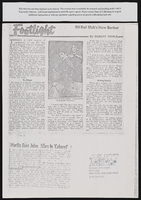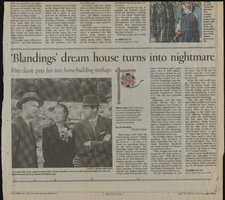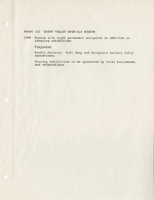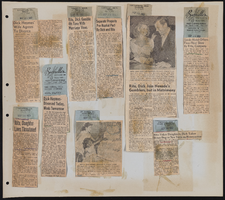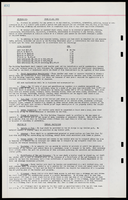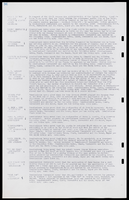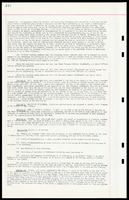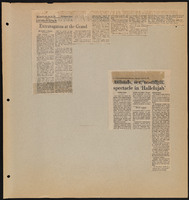Search the Special Collections and Archives Portal
Search Results

Transcript of interview with Robert Brown by Ian McLaughlin, February 23, 1981
Date
Archival Collection
Description
Text

Jill Roberts oral history interview: transcript
Date
Archival Collection
Description
Oral history interview with Jill Roberts conducted by Barbara Tabach and Claytee D. White on March 20, 2018 for the Remembering 1 October Oral History Project. In this interview, Jill Roberts discusses her position as the CEO of the Trauma Intervention Program (TIP) of Southern Nevada. She also delves into her part-time work at the coroner's office as a death investigator and discusses her personal background in Las Vegas, Nevada after she moved to the city in 1977. She describes the role TIP had during the aftermath of the October 1, 2017 mass shooting, where well-trained volunteers were dispatched to hotels, hospitals, and anywhere else the survivors reached in order to provide emotional and practical support. Throughout the interview, Roberts emphasizes that the assistance provided to those in a traumatic event depends on each individual's needs. She shares a few examples of what the TIP volunteers had helped with after the shooting, including listening to the survivors' stories as well as providing information on the situation, helping separated loved ones find each other, arranging travel for some survivors to go back to their homes, and procuring clothes and shoes for those who needed them. Roberts also discusses the gratitude TIP had received after the shooting, including the thank you cards sent by Sandy Hook High School.
Text

